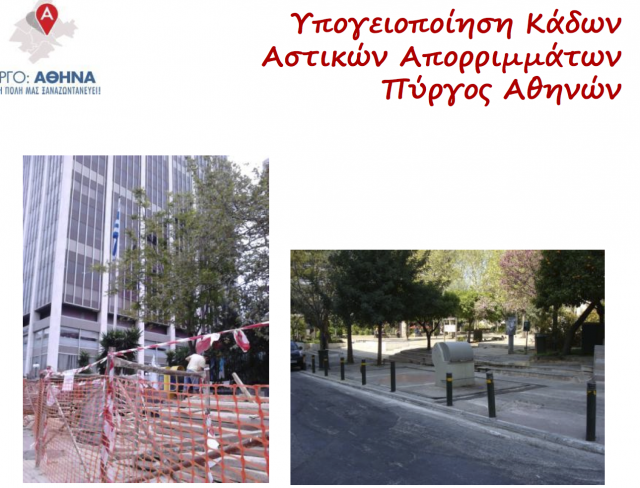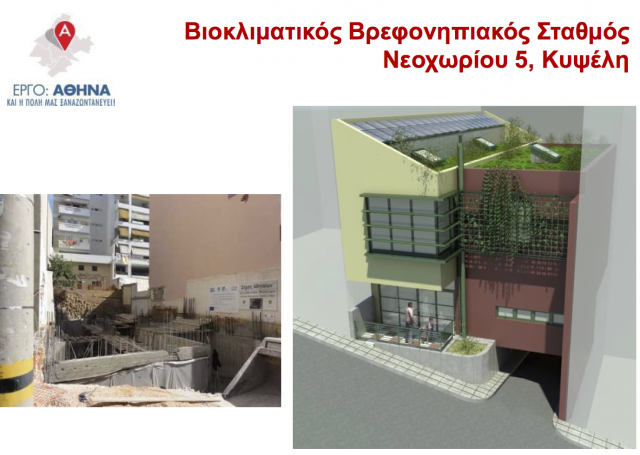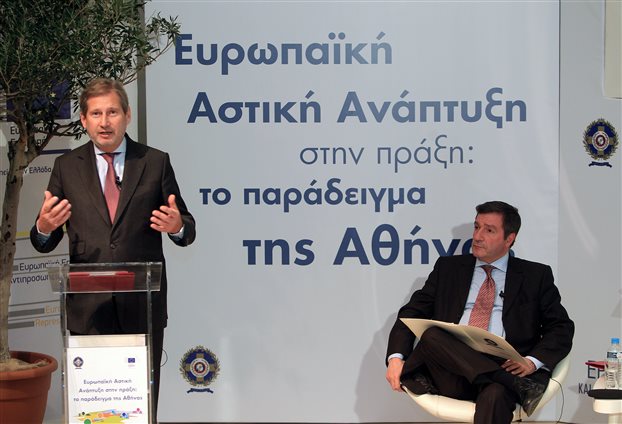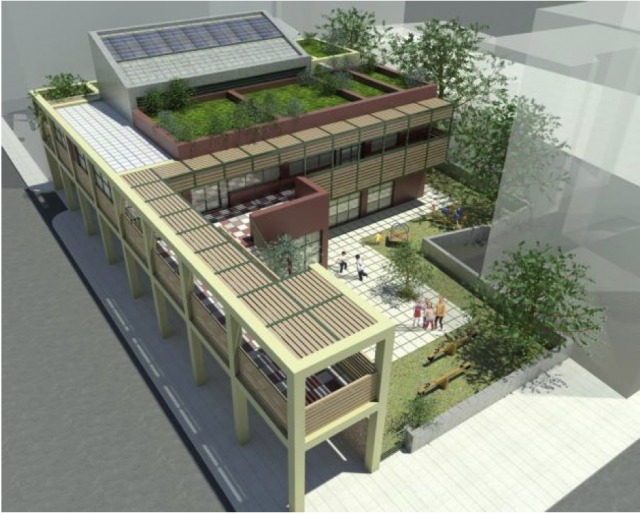Anastasia Balezdrova
Three new kindergartens, which will be housed in bioclimatic buildings, supply and installation of a mechanism for underground placement and compression of waste, restoration of old buildings and construction of a new swimming pool and park around it in the neighbourhood of Petralona.
These are just some of the 16 projects that are being implemented in Athens under the plan for urban reconstruction and development "The Athens Project", which was presented by Mayor of Athens Giorgos Kaminis in the presence of European Commissioner for Regional Development Johannes Hahn, citizens, businessmen and representatives of non-profit organisations.
"This is the first comprehensive plan for the development of the city, which is operating in four directions, namely supporting entrepreneurship, improving the quality of life of the residents, restoring the urban network and addressing the social crisis," said Kaminis.

He pointed out that in 2012 the municipality of Athens had been able to provide, from the European Commission, direct funding to the amount of 120 million euro for 72 projects. So far, 16 of them, with a total budget of 38 million euro, have been implemented whereas the competitions for other projects with a total budget of 61 million euro will be completed by the end of the year.
The mayor of Athens explained that this time the money is not being used for repairs of squares, parks and similar interventions. "Our goal is to offer complete solutions and to connect the research centres with the labour market, help new and established companies and to create contacts between social partners in order to make Athens a beautiful and functional city where all will live and work freely."
Giorgos Kaminis stressed that the financial independence of the municipalities is very important for their efficiency and suggested that they should take part in defining the European policy at central level.

During the Greek Presidency of the European Union, he will propose a programme called "Active cities - Engaged citizens", which will engage the citizens in participating in the solving of serious social problems in cooperation with the municipalities.
For his part, European Commissioner Johannes Hahn said that regulations facilitating small companies have been added to the European legislation since 2009 whereas the Small Business Act has provided the opportunity of setting up a company within three days and added that, unfortunately, only two of the 27 member states have introduced it into their national legislation. "Entrepreneurship among young people is a priority for us and there is a great need to create new companies that are more competitive than the existing ones, especially in the case of Greece," he said.

Giorgos Kaminis gave as examples of such collaborations the "Social Home" programme for the homeless in Athens under which the municipality cooperates with the private organisation "Humane People" (you can read GRReporter’s article on the topic here).
Three representatives of the civil society in Athens complemented the vision of the municipality with their ideas.
The initiative "A cup of coffee is waiting for you" of street paper "Shedia" is one of the campaigns, taking care of those in dire financial straits. Its editor Christos Alefantis said that cooperation with the municipality for their reintegration into society is necessary in addition to the basic support related to the provision of food and safe shelter.
"Homeless people and people with low or no income are selling the paper in the streets. It costs 3 euro and half of this amount goes directly to the seller. Our aim is for the people to feel better and regain their dignity, to step out of their houses and go where they are useful. They themselves say that this is actually the most important thing for them after the financial side."

According to the principal of one of the exemplary schools in Athens, Kostis Kondoyannis, the school must become a living organism, integrating the local communities.
"We need libraries, computer labs, faster systems if we are to have good education. I do not think we need more schools. Many plots are not used today, which can become cultural centres used by schools during the day and by the local community in the afternoon and in the evening. This achieves cooperation and strengthens the ties within a community. If we want to bring people back to the cities we have to offer them not only work but also good schools, and "a good school" sometimes may mean just a beautiful yard or a well-equipped playground."